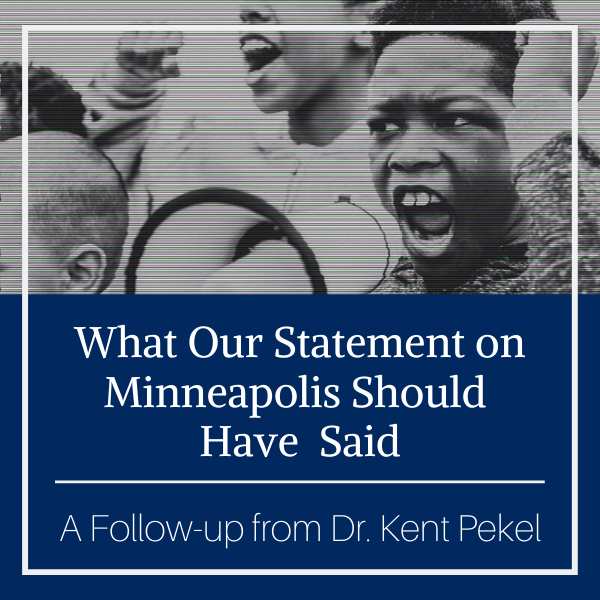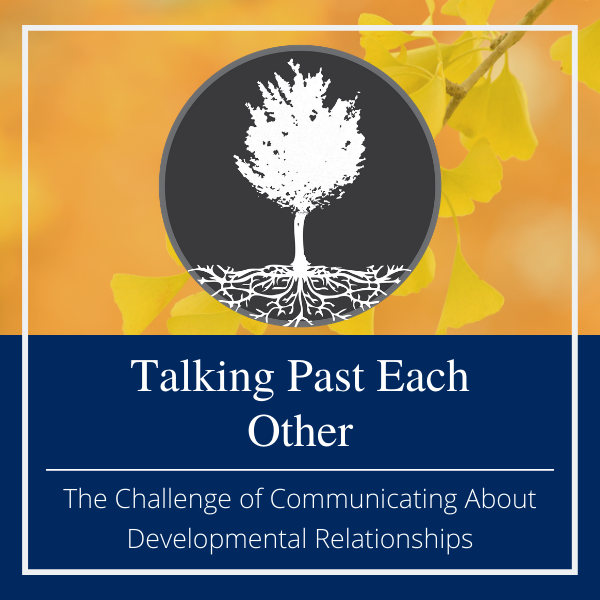Blog
What Our Statement on Minneapolis Should Have Said
By Kent Pekel, President & CEO, Search Institute
Last Wednesday, May 27, I sent out a statement that articulated Search Institute’s opposition to the murder of George Floyd in our home community of Minneapolis. We received many positive responses, but a number of people shared concerns that make me wish the statement were written differently. Those concerns deserve attention and discussion as our nation continues to grapple with the realities of racism and injustice.
When I wrote the statement amidst the pain and protests that were gripping Minneapolis last Wednesday, I thought the most important sentence was the final one, in which Search Institute committed to “partner with advocates and organizations that are working to systemically change the racist structures and cultures that contribute to tragedies like the one our city is living through today.” That was not, however, the sentence about which four people (three of whom identified themselves as African American) wrote to express their concerns. That sentence was:
In [George Floyd’s] memory and in the memory of the many other African Americans whose lives tragically ended in similar circumstances, we will rededicate ourselves to helping youth-serving organizations equip African American children and youth – and young people from other historically marginalized communities – with the developmental relationships they need to be and become their best selves.
The statement raised two concerns. First, as one writer observed, “A relationship with a caring adult would not have helped Mr. George Floyd.” And, second, as another writer pointed out, the sentence could be read as implying that African American young people, “are not their best selves and will not be their best selves without another institution coming in with a white savior mentality to help our black children.”
All four writers suggested that, rather than or in addition to working to strengthen developmental relationships in the lives of African American young people, Search Institute should focus on shifting the attitudes and behaviors of white young people so that tragedies like Mr. Floyd’s death are no longer a common occurrence in our country.
My response is to simply and sincerely say: I agree. Removing racist structures and cultures is not the responsibility of African American young people or young people growing up in other communities that have historically been marginalized. Those of us who are white must listen to the lived experiences and voices of those youth, but it is not their job to dismantle the forces that have marginalized them and their communities. Rather, dismantling racism is the responsibility of all white people in their families, on their jobs, and in their communities. That is a responsibility that I, as a white man, accept and embrace.
The people who wrote to us last week are also correct in suggesting that Search Institute could play a more constructive role, as one of them wrote, in “teaching our youth with the privilege of white skin to become and be their best selves.” We will strengthen that aspect of our work in the months and years ahead.
In the meantime, I want to thank all of the people who sent messages in response to the statement we released last week – notably including those who pointed out ways we could have said it better.


